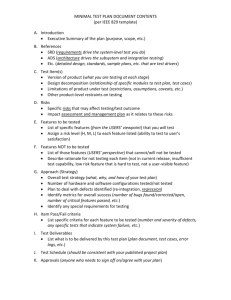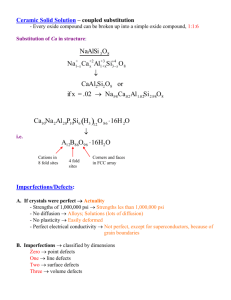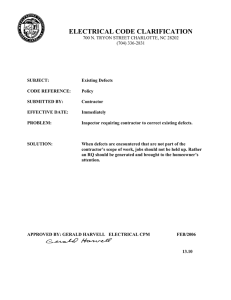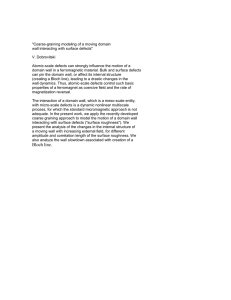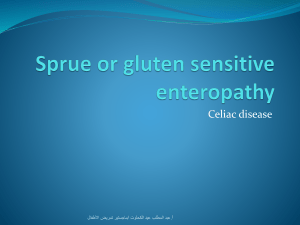30764.docx
advertisement
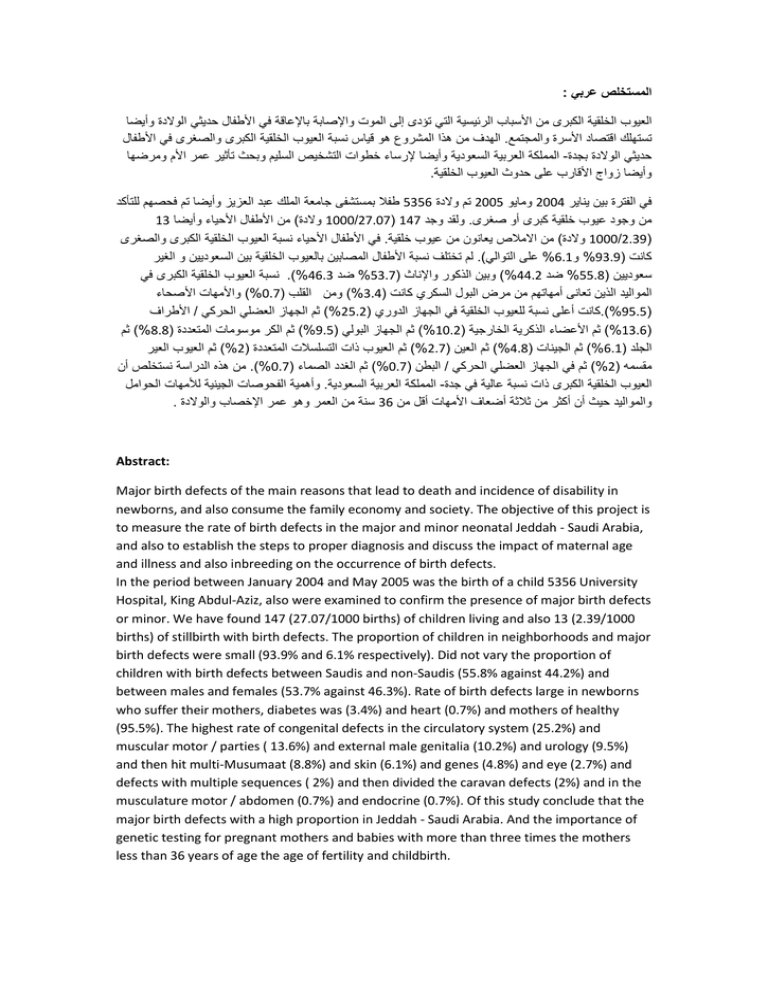
: المستخلص عربي العيوب الخلقية الكبرى من األسباب الرئيسية التي تؤدى إلى الموت واإلصابة باإلعاقة في األطفال حديثي الوالدة وأيضا الهدف من هذا المشروع هو قياس نسبة العيوب الخلقية الكبرى والصغرى في األطفال.تستهلك اقتصاد األسرة والمجتمع المملكة العربية السعودية وأيضا إلرساء خطوات التشخيص السليم وبحث تأثير عمر األم ومرضها-حديثي الوالدة بجدة .وأيضا زواج األقارب على حدوث العيوب الخلقية طفال بمستشفى جامعة الملك عبد العزيز وأيضا تم فحصهم للتأكد5356 تم والدة2005 ومايو2004 في الفترة بين يناير 13 والدة) من األطفال األحياء وأيضا1000/27.07( 147 ولقد وجد.من وجود عيوب خلقية كبرى أو صغرى في األطفال األحياء نسبة العيوب الخلقية الكبرى والصغرى. والدة) من االمالص يعانون من عيوب خلقية1000/2.39( لم تختلف نسبة األطفال المصابين بالعيوب الخلقية بين السعوديين و الغير.) على التوالي%6.1 و%93.9( كانت نسبة العيوب الخلقية الكبرى في.)%46.3 ضد%53.7( ) وبين الذكور واإلناث%44.2 ضد%55.8( سعوديين ) واألمهات األصحاء%0.7( ) ومن القلب%3.4( المواليد الذين تعانى أمهاتهم من مرض البول السكري كانت األطراف/ ) ثم الجهاز العضلي الحركي%25.2( كانت أعلى نسبة للعيوب الخلقية في الجهاز الدوري.)%95.5( ) ثم%8.8( ) ثم الكر موسومات المتعددة%9.5( ) ثم الجهاز البولي%10.2( ) ثم األعضاء الذكرية الخارجية%13.6( ) ثم العيوب العير%2( ) ثم العيوب ذات التسلسالت المتعددة%2.7( ) ثم العين%4.8( ) ثم الجينات%6.1( الجلد من هذه الدراسة نستخلص أن.)%0.7( ) ثم الغدد الصماء%0.7( البطن/ ) ثم في الجهاز العضلي الحركي%2( مقسمه وأهمية الفحوصات الجينية لألمهات الحوامل. المملكة العربية السعودية-العيوب الخلقية الكبرى ذات نسبة عالية في جدة . سنة من العمر وهو عمر اإلخصاب والوالدة36 والمواليد حيث أن أكثر من ثالثة أضعاف األمهات أقل من Abstract: Major birth defects of the main reasons that lead to death and incidence of disability in newborns, and also consume the family economy and society. The objective of this project is to measure the rate of birth defects in the major and minor neonatal Jeddah - Saudi Arabia, and also to establish the steps to proper diagnosis and discuss the impact of maternal age and illness and also inbreeding on the occurrence of birth defects. In the period between January 2004 and May 2005 was the birth of a child 5356 University Hospital, King Abdul-Aziz, also were examined to confirm the presence of major birth defects or minor. We have found 147 (27.07/1000 births) of children living and also 13 (2.39/1000 births) of stillbirth with birth defects. The proportion of children in neighborhoods and major birth defects were small (93.9% and 6.1% respectively). Did not vary the proportion of children with birth defects between Saudis and non-Saudis (55.8% against 44.2%) and between males and females (53.7% against 46.3%). Rate of birth defects large in newborns who suffer their mothers, diabetes was (3.4%) and heart (0.7%) and mothers of healthy (95.5%). The highest rate of congenital defects in the circulatory system (25.2%) and muscular motor / parties ( 13.6%) and external male genitalia (10.2%) and urology (9.5%) and then hit multi-Musumaat (8.8%) and skin (6.1%) and genes (4.8%) and eye (2.7%) and defects with multiple sequences ( 2%) and then divided the caravan defects (2%) and in the musculature motor / abdomen (0.7%) and endocrine (0.7%). Of this study conclude that the major birth defects with a high proportion in Jeddah - Saudi Arabia. And the importance of genetic testing for pregnant mothers and babies with more than three times the mothers less than 36 years of age the age of fertility and childbirth.

